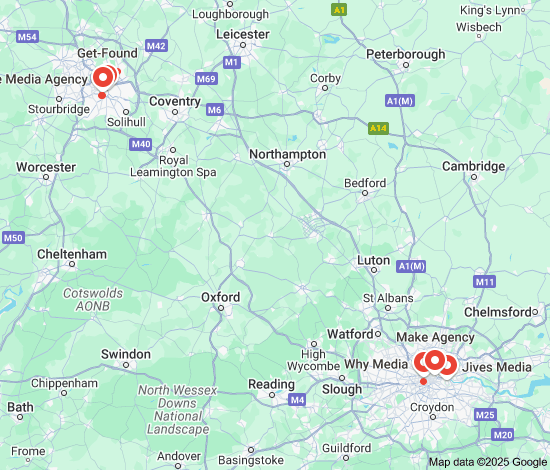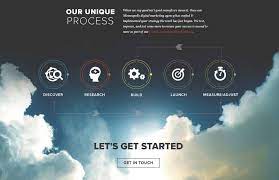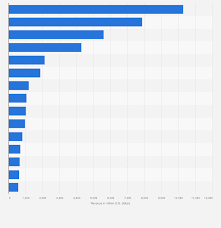The Power of Online Marketing and Advertising
In today’s digital age, online marketing and advertising have become essential tools for businesses to reach their target audience and drive growth. With the vast reach and accessibility of the internet, companies can connect with potential customers on a global scale like never before.
Benefits of Online Marketing
Online marketing offers a range of benefits that traditional advertising methods simply cannot match. One of the key advantages is the ability to target specific demographics with precision. Through tools like social media advertising and Google AdWords, businesses can tailor their marketing campaigns to reach audiences based on factors such as age, location, interests, and online behaviour.
Furthermore, online marketing provides real-time analytics that allow businesses to track the performance of their campaigns instantly. This data-driven approach enables companies to make informed decisions and optimise their strategies for better results.
The Rise of Social Media Advertising
Social media platforms have revolutionised the way businesses advertise online. With billions of active users across platforms like Facebook, Instagram, Twitter, and LinkedIn, companies can engage with their target audience in a more interactive and personal way.
Social media advertising offers advanced targeting options that enable businesses to reach users based on their demographics, interests, behaviours, and even life events. This level of specificity ensures that marketing messages are delivered to the right people at the right time.
Maximising ROI with Online Advertising
Online advertising provides a cost-effective way for businesses to promote their products or services compared to traditional forms of advertising. With pay-per-click (PPC) campaigns, companies only pay when users click on their ads, making it a more efficient use of marketing budgets.
By leveraging online advertising channels such as Google Ads or display networks, businesses can increase brand awareness, drive website traffic, generate leads, and ultimately boost sales conversions. The ability to measure campaign performance in real-time allows companies to adjust strategies on-the-fly for maximum return on investment (ROI).
Embracing the Future of Marketing
As technology continues to evolve and consumer behaviours shift towards digital channels, online marketing and advertising will play an increasingly crucial role in shaping the success of businesses worldwide. By harnessing the power of data-driven insights and targeted campaigns, companies can stay ahead in an ever-changing marketplace.
Understanding Online Marketing and Advertising: Answers to 19 Common Questions
- What are the two types of online advertising?
- What do you mean by online marketing and advertising?
- What is the advantage of online marketing and advertising?
- What is online advertising advertising?
- What is meant online marketing?
- What is the difference between advertising and digital marketing?
- What is online advertising called?
- What is the difference between advertising and marketing?
- What means online marketing?
- What is online advertising with example?
- What is the main purpose of online advertising?
- What is the difference between marketing and advertising?
- What is the difference between online marketing and advertising?
- What is the purpose of online advertising?
- What are 8 types of online advertising?
- Which is an example of online advertising?
- How to do online marketing and advertising?
- What is the difference between digital marketing and advertising?
- What type of advertising is online?
What are the two types of online advertising?
There are primarily two types of online advertising: display advertising and search advertising. Display advertising involves placing visual ads on websites, apps, or social media platforms to increase brand visibility and attract potential customers. On the other hand, search advertising focuses on paid search results displayed prominently on search engine results pages, targeting users actively searching for specific products or services. Both types of online advertising play a crucial role in reaching target audiences effectively and driving traffic to businesses’ websites.
What do you mean by online marketing and advertising?
Online marketing and advertising refer to the strategies and techniques used by businesses to promote their products or services on digital platforms such as websites, search engines, social media, and email. Online marketing encompasses a wide range of activities, including search engine optimisation (SEO), pay-per-click (PPC) advertising, social media marketing, content marketing, email marketing, and more. The goal of online marketing and advertising is to increase brand visibility, attract potential customers, drive website traffic, generate leads, and ultimately boost sales conversions in the competitive landscape of the digital marketplace.
What is the advantage of online marketing and advertising?
The advantage of online marketing and advertising lies in its ability to reach a highly targeted audience with precision and efficiency. Unlike traditional forms of advertising, online channels offer businesses the opportunity to tailor their messages to specific demographics based on factors such as age, location, interests, and online behaviour. This level of customisation ensures that marketing campaigns resonate with the right audience at the right time, leading to higher engagement rates and increased conversion opportunities. Additionally, the real-time analytics provided by online marketing tools allow businesses to track campaign performance instantly and make data-driven decisions to optimise their strategies for maximum impact and return on investment.
What is online advertising advertising?
Online advertising, also known as online marketing, refers to the promotion of products or services through digital channels on the internet. It encompasses a wide range of strategies and techniques aimed at reaching and engaging target audiences to drive brand awareness, website traffic, and ultimately, conversions. Online advertising can take various forms, including display ads, social media ads, search engine marketing (SEM), email marketing, influencer partnerships, and more. By leveraging the vast reach and targeting capabilities of online platforms, businesses can effectively showcase their offerings to the right audience at the right time to achieve their marketing objectives.
What is meant online marketing?
Online marketing, also known as internet marketing or digital marketing, refers to the strategic use of online channels and platforms to promote products or services to a target audience. This encompasses a wide range of tactics such as social media marketing, search engine optimisation (SEO), email marketing, pay-per-click (PPC) advertising, content marketing, and more. The primary goal of online marketing is to increase brand awareness, drive website traffic, generate leads, and ultimately boost sales conversions through engaging with potential customers in the digital realm. It allows businesses to reach a global audience, track campaign performance in real-time, and tailor their strategies based on data-driven insights for maximum effectiveness.
What is the difference between advertising and digital marketing?
When exploring the distinction between advertising and digital marketing, it is important to understand that advertising is a component of digital marketing. Advertising refers to the promotion of products or services through paid channels such as TV commercials, print ads, and online banners. On the other hand, digital marketing encompasses a broader range of activities beyond just paid advertising, including email marketing, social media engagement, content creation, search engine optimisation (SEO), and more. While advertising focuses on pushing out promotional messages to a target audience, digital marketing involves a holistic approach to building brand awareness, engaging customers across various online platforms, and driving conversions through strategic online tactics.
What is online advertising called?
Online advertising is commonly referred to as digital advertising or internet advertising. It encompasses various marketing strategies and tactics used to promote products or services online through channels such as websites, social media platforms, search engines, email campaigns, and display networks. Digital advertising allows businesses to reach their target audience effectively, track campaign performance in real-time, and tailor messages based on user behaviour and preferences. This dynamic and versatile form of marketing has become integral to modern business strategies in the digital landscape.
What is the difference between advertising and marketing?
When it comes to online marketing and advertising, a common question that arises is the distinction between advertising and marketing. While advertising is a specific component of marketing, marketing encompasses a broader set of activities aimed at promoting products or services. Advertising involves creating and delivering messages to target audiences through various channels to drive sales or brand awareness. On the other hand, marketing encompasses a strategic approach that includes market research, product development, pricing, distribution, and promotional activities like advertising. In essence, advertising is a subset of marketing focused on communication and promotion aspects. Understanding this difference is crucial for businesses looking to develop effective online strategies that encompass both advertising and broader marketing initiatives.
What means online marketing?
Online marketing, also known as internet marketing or digital marketing, refers to the practice of promoting products or services using various online channels and platforms. This includes strategies such as search engine optimisation (SEO), social media marketing, email marketing, pay-per-click advertising, and content marketing. The goal of online marketing is to reach and engage with a target audience on the internet to drive brand awareness, generate leads, increase website traffic, and ultimately boost sales conversions. By leveraging the power of digital technologies and data-driven insights, businesses can effectively promote their offerings in the competitive online landscape.
What is online advertising with example?
Online advertising refers to the promotion of products or services using digital channels on the internet. An example of online advertising is display advertising, where businesses create visual ads in various formats (such as banners or videos) and place them on websites, apps, or social media platforms to reach their target audience. These ads can be targeted based on demographics, interests, or online behaviour, allowing companies to deliver relevant messages to potential customers. Online advertising is a cost-effective and measurable way for businesses to increase brand awareness, drive traffic to their websites, and ultimately boost sales conversions in the digital landscape.
What is the main purpose of online advertising?
The main purpose of online advertising is to promote products or services to a targeted audience through digital channels such as websites, social media platforms, search engines, and mobile apps. By leveraging the vast reach and interactivity of the internet, businesses aim to increase brand awareness, drive website traffic, generate leads, and ultimately boost sales conversions. Online advertising allows companies to reach specific demographics with precision, measure campaign performance in real-time, and optimise strategies for maximum return on investment. Overall, the primary goal of online advertising is to engage with potential customers effectively and influence their purchasing decisions in a competitive digital landscape.
What is the difference between marketing and advertising?
When it comes to online marketing and advertising, a common question that arises is: What is the difference between marketing and advertising? Marketing encompasses a broader set of activities aimed at promoting products or services, building brand awareness, and engaging with customers to drive sales. It involves strategic planning, market research, product development, pricing strategies, and customer relationship management. On the other hand, advertising specifically refers to the communication of promotional messages through various channels such as online ads, social media campaigns, TV commercials, and print media. While advertising is a key component of marketing, it focuses on creating awareness and persuading target audiences to take specific actions. Understanding the distinction between marketing and advertising is essential for businesses to develop comprehensive strategies that effectively reach and engage their target market in the digital landscape.
What is the difference between online marketing and advertising?
Online marketing and advertising are often used interchangeably, but they serve distinct purposes in a company’s overall digital strategy. Online marketing encompasses a broader scope of activities aimed at promoting a brand, engaging with customers, and driving sales through various online channels such as social media, email marketing, content marketing, and search engine optimisation (SEO). On the other hand, online advertising specifically refers to paid promotional efforts that involve placing ads on digital platforms to reach a targeted audience. While online marketing focuses on building relationships and creating valuable content to attract customers organically, online advertising involves paying for visibility and immediate results through sponsored content or display ads. Both online marketing and advertising are essential components of a comprehensive digital marketing strategy that work together to achieve business objectives effectively.
What is the purpose of online advertising?
The purpose of online advertising is to promote products or services to a targeted audience through digital channels such as websites, social media platforms, search engines, and mobile apps. By leveraging online advertising, businesses aim to increase brand awareness, drive website traffic, generate leads, and ultimately boost sales conversions. With the ability to reach specific demographics with precision and measure campaign performance in real-time, online advertising provides a cost-effective and efficient way for companies to connect with potential customers and achieve their marketing objectives in the digital landscape.
What are 8 types of online advertising?
When exploring the realm of online marketing and advertising, it’s common to encounter the question: “What are the 8 types of online advertising?” There are various forms of online advertising that businesses can utilise to promote their products or services effectively. Some of the key types include display ads, social media ads, search engine marketing (SEM), native advertising, video ads, email marketing, influencer marketing, and affiliate marketing. Each type offers unique advantages and can be tailored to suit different business objectives and target audiences. By understanding the nuances of these diverse online advertising formats, businesses can craft comprehensive strategies to enhance their digital presence and engage with potential customers in meaningful ways.
Which is an example of online advertising?
An example of online advertising is display advertising, where businesses promote their products or services through visual ads on websites, apps, or social media platforms. These ads can be in the form of banners, pop-ups, or interactive multimedia content designed to capture the attention of users and drive engagement. Display advertising allows companies to reach a wide audience online and target specific demographics based on factors like interests, behaviour, and location. This form of online advertising is commonly used to increase brand awareness, drive website traffic, and generate leads for businesses looking to expand their online presence.
How to do online marketing and advertising?
To effectively engage in online marketing and advertising, businesses can start by defining their target audience and setting clear objectives for their campaigns. Utilising a mix of digital channels such as social media, search engine marketing, email marketing, and display advertising can help reach a wider audience. Creating compelling and relevant content that resonates with the target demographic is key to capturing their attention. Additionally, leveraging data analytics to track campaign performance and make data-driven decisions can optimise results. Collaborating with experienced digital marketing professionals or agencies can also provide valuable insights and expertise in navigating the complexities of online marketing and advertising strategies.
What is the difference between digital marketing and advertising?
When addressing the frequently asked question about the difference between digital marketing and advertising, it is essential to understand that while both terms are closely related, they serve distinct purposes within the realm of online promotion. Digital marketing encompasses a broader scope of activities aimed at building brand awareness, engaging with audiences, and driving conversions through various online channels such as social media, email marketing, content creation, and search engine optimisation. On the other hand, digital advertising specifically focuses on paid promotional efforts that involve placing ads across digital platforms to reach specific target audiences and drive immediate actions. In essence, digital marketing is a comprehensive strategy that includes digital advertising as one of its components to achieve overall campaign objectives effectively.
What type of advertising is online?
Online advertising encompasses various types, each tailored to reach and engage audiences across the digital landscape. Common forms of online advertising include display ads, search engine marketing (SEM), social media advertising, video ads, native advertising, email marketing, and affiliate marketing. Display ads appear on websites in the form of banners or interactive media to promote products or services. SEM involves paid search ads that appear on search engine results pages based on keywords. Social media advertising leverages platforms like Facebook and Instagram to target specific demographics with sponsored content. Video ads are short video clips displayed before or during online videos to capture viewers’ attention. Native advertising seamlessly integrates promotional content into a website’s design for a more organic user experience. Email marketing delivers targeted messages directly to users’ inboxes, while affiliate marketing involves partnerships with third-party websites to promote products or services in exchange for commission. These diverse forms of online advertising offer businesses a wide array of options to connect with their target audience effectively in the digital realm.




